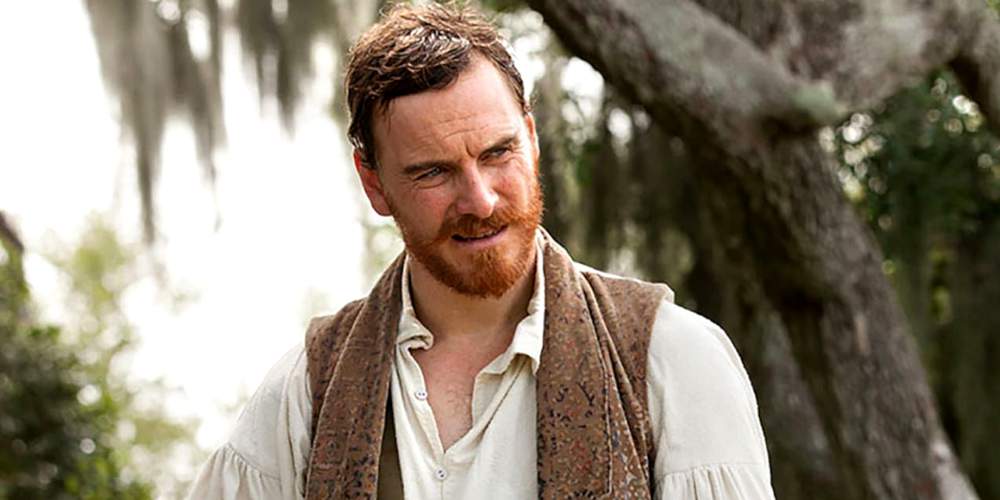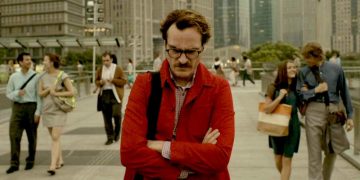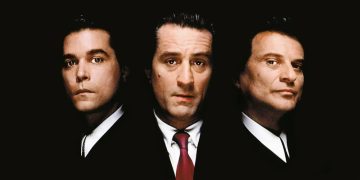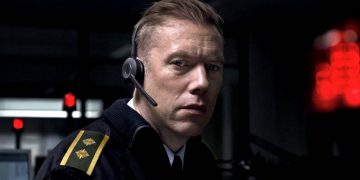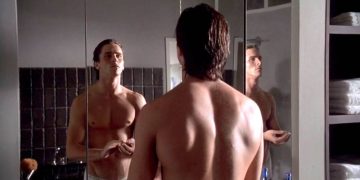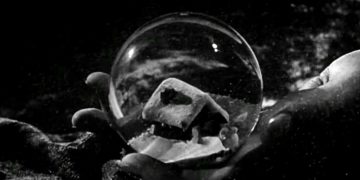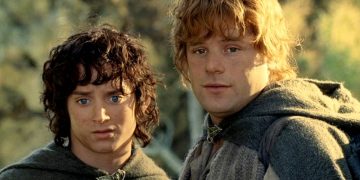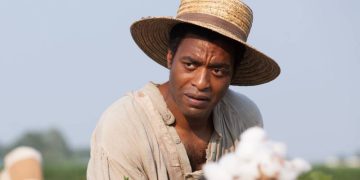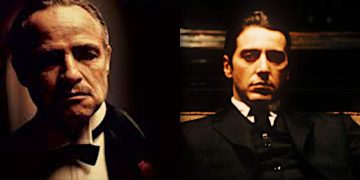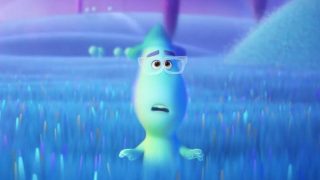What does it mean to be a man? The concept of masculinity started changing in the 1960s, when pop music and underground artists challenged the ideals of the society that raised them.
For a long time, men aspired to the stereotypical American Dream: that men had to be macho leaders of families living in a halcyon housing estate, complete with ruddy-faced children and a lovable dog.
Various countercultures pushed toward different extremes away from traditional norms, including hippie culture, androgyny, punk rock, and more. Movies and TV shows began to reflect the changing of tides as new auteurs took notes from the French New Wave.
But the toxicity that plagued young men remained ever-present in their lives, an unwanted hand-me-down given to them by generations of men who allowed their feelings to go unspoken.
Masculinity isn't toxic, but there's a kind of masculinity that is. It steadily infects generation to generation, with young and old men alike falling victim to its horrors. We've seen this kind of masculinity reflected in movies that have chosen to challenge it.
Here are some of the best depictions of toxic masculinity in movies that are absolutely still worth watching today.
10. Travis Bickle in Taxi Driver (1976)
Travis Bickle was a madman, there's no doubt about that. But his attitude towards the object of his lust was the result of his participation in the Vietnam War and his subsequent career as a taxi driver.
He's your typical loner who's increasingly dangerous due to his deteriorating mental state, and he's even more dangerous because he paints himself as the hero.
Travis Bickle sees himself as the man who will save a young Iris (Jodie Foster) from her life of prostitution, rid the streets of bad guys, and walk away with the love of those who ignore him.
As mentioned, Bickle's toxic masculinity is largely rooted in his war experience, of which the lasting psychological effects have corrupted his mind and made him view himself as a hero.
Robert De Niro is perfect in this lead role, who extraordinarily portrays this man who's breaking at the seams.
9. Tony Montana in Scarface (1983)
Al Pacino's Tony Montana had problems everywhere he looked, ones that caused his already-violent nature to spin out of control.
Starting with his relationship with his sister, Tony has major problems with women (highlighted in his famous "In America" speech). He sees women as desirable objects, with Elvira (Michelle Pfeiffer) bearing the brunt of his psychotic personality through their relationship.
Pacino's performance as Tony Montana is still a defining moment in gangster cinema, as he murders his way to the top of a drug empire before being killed in the most perfect finale.
Through it all, Pacino weighted Tony with an insular madness that fed his toxic personality, leaving us in a precarious position where we want to back him but also wish him dead at the same time.
In the end, Tony Montana was always supposed to be the devil in human form by the film's climax, but Pacino gave him so much more in the portrayal and it made him that much worse.
8. Rick Blaine in Casablanca (1942)
Above all, Humphrey Bogart's Rick Blaine was a man desperately in love with the woman who left him. Still with that pain, Rick now runs a bar in Casablanca ahead of the Nazi invasion.
When Ilsa drops in one day with her husband Victor Laszlo, Rick is stuck between his head and his heart. He could choose to bring Ilsa back into his life and allow Laszlo to be captured, but that would hinder the Allied efforts during the Second World War.
It's one of the most human struggles, and Rick truly contemplates a life with his forever love Ilsa where they escape Casablanca together before the Nazis arrive—and Ilsa is all aboard with that plan because she's still as madly in love with him, too.
But when the moment of truth comes, Rick flakes and tells Ilsa to get on the plane with her husband Victor.
How is this toxic masculinity? Isn't he being the bigger man here? The problem is Rick telling her what to do when she wants to be with Rick. He's the type of person who knows he has control over a woman, despite her wants.
7. Tommy DeVito in Goodfellas (1990)
Tommy DeVito was a killer without remorse and his mannerisms were perfect covers for the monster that hid under his skin. But how did he get to that stage in the first place?
DeVito became who he was because of his deep-seated desire to prove himself a man worthy to be part of the mob, to the point that he became a "made guy" (i.e. should he ever be killed, his death would be avenged by the members of his family).
Of course, Tommy meets his end in Goodfellas, but not before showing how much he wanted to show off his masculinity.
Joe Pesci's Goodfellas performance earned him an Oscar and was the pinnacle of his stellar career. He played Tommy DeVito with such a strong sense of toxicity that's hard to look past, as every action he takes is more toxic than the last.
6. James Bond in Dr. No (1962)
Sean Connery's James Bond launched one of the greatest cinematic franchises of all time, giving us a character so engaging that he drew in an audience with little more than his wit and a cold stare.
However, it's abundantly clear that Connery's incarnation of Bond was problematic. He suffers the same toxic masculinity that have tarnished many male characters from cinema's past.
James Bond is a womanizer and an alcoholic who has no regard for the people he interacts with. He sees women as disposable objects and frequently uses them to achieve his own selfish ends.
Sean Connery's spy will always be iconic for his swagger, but this version of Bond is one that's riddled with deficiencies. He might be the good guy, but he's rarely nice—and he also suffers from a complex that permeates his character.
5. Charles Foster Kane in Citizen Kane (1941)
Orson Welles's cinematic behemoth Citizen Kane has loomed like a specter over Hollywood, much as its main protagonist looms over everything and everyone in the film itself.
Citizen Kane is arguably the finest movie ever made—but more than that, it was unique in how it explored themes of toxic masculinity before the topic had even found its way into Hollywood films.
Orson Welles's Charles Foster Kane is a man of near-unlimited wealth, who possesses the ability to charm everyone around him and can pretty much operate without any oversight for the most part.
Through the character of Kane, Welles brought across a man who owned the entire world but suffered for it. He exerted power over everything around him and believed himself infallible, even pushing women to do things they didn't want to do for his own amusement.
Charles Foster Kane has the ideals of the era on his shoulders. He wants to be a man, but his attempts result in poisonous relationships with everyone who could ever love him.
4. Daniel Plainview in There Will Be Blood (2007)
In There Will Be Blood, the power of wealth and the pursuit of even further riches are what push Daniel Day-Lewis's Daniel Plainview to his limits as he seeks out his fortune.
The character of Daniel Plainview has no time for the benefits of outside life. He's more like a machine, one that seeks to make money from oil and suck the land dry—land that he came in and invaded.
But it's only through his relationship with his adopted son, HW, that we see the real creature of Daniel Plainview. He views HW as a business tool: a boy that exists to make him appear to be a family man to those whom he needs to convince to drill oil.
Any feeling that he has for HW falls short of his obsession for the money he could earn, and that obsession drives him forward. Plainview also uses his dominating nature to expose and manipulate Eli, the foolish young man who invites Plainview to drill on his father's land.
His toxic masculinity puts down everyone around him, never allowing an inch around his carefully cultivated operation. Through his tight control and clever aggression, Plainview shows that he must be the person in charge at all times; otherwise, he'd be lost.
3. Edwin Epps in 12 Years a Slave (2013)
Michael Fassbender's evil slave owner in 12 Years a Slave isn't a character who shows himself to be human for much of the time.
Even amongst the other slave owners, Edwin Epps is known for his barbaric treatment of his slaves, treating them worse than farmers treat cattle bound for the slaughterhouse.
His constant psychological torture and ruthless beatings make the film difficult to watch, but his outright cruelty shows Epps as a man who suffers from masculinity himself.
He often engages in sexual relations with his slaves—primarily Patsey—because he's attracted to the power he has over them. Yet he reacts almost kindly to the children who run around his plantation, despite his ownership and sadistic treatment of their parents.
Edwin Epps is a person who needs to lord his power over others to stroke his ego and dampen the conflicted feelings he has inside.
2. Michael Corleone in The Godfather (1972)
Reluctantly heading the Corleone family—after the stepping-down and death of his father—Michael Corleone's journey from decorated soldier to ruthless mafia don depicts the pressures of toxic masculine expectations on somebody who doesn't want it.
Through the three Godfather films, Michael's descent into ruthless evil is balanced by a sense of power that he must exude at all times as head of his crime family.
When we first meet him, Michael Corleone is just a boy who returns home from war. He has no stomach for fighting anymore and has no intention of joining his family's crime business.
However, due to the murder of his older brother and the ineptitude of his other brother, Michael has to take on the role. That pressure leads him to exhibit the toxicity of the dominating power he has in the seat.
Through his relationship with Kay, we see Michael go from a caring younger man to a cold-hearted adult who views those around him as pawns in his empire. He must control them, and he pushes Kay away as his dominance takes over his once-gentle soul.
1. Mr. O'Brien in The Tree of Life (2011)
Brad Pitt's Mr. O'Brien in The Tree of Life represents a man who tried to be something new in a world that wanted him to join the American Dream, to have his place on the line and happily work his life away. It was a common ideal during the late-1950s and early-1960s.
But years of failure and the various trials handed down to him leave Mr. O'Brien bitter and angry about his place in the world—an anger that he unleashes on his family through unrelenting passive aggression.
His son, Jack, hates his father's manner and ire, preferring the softer nature of his caring mother. Mr. O'Brien takes that as a sign of weakness in his child, and he often tries to teach him the value of being able to see the world for what he feels it is: corrupt.
The power in Pitt's performance comes from the reality of the situation he evokes, showing a toxic masculine temperament that dominated the lives of so many in the immediate post-War era.
